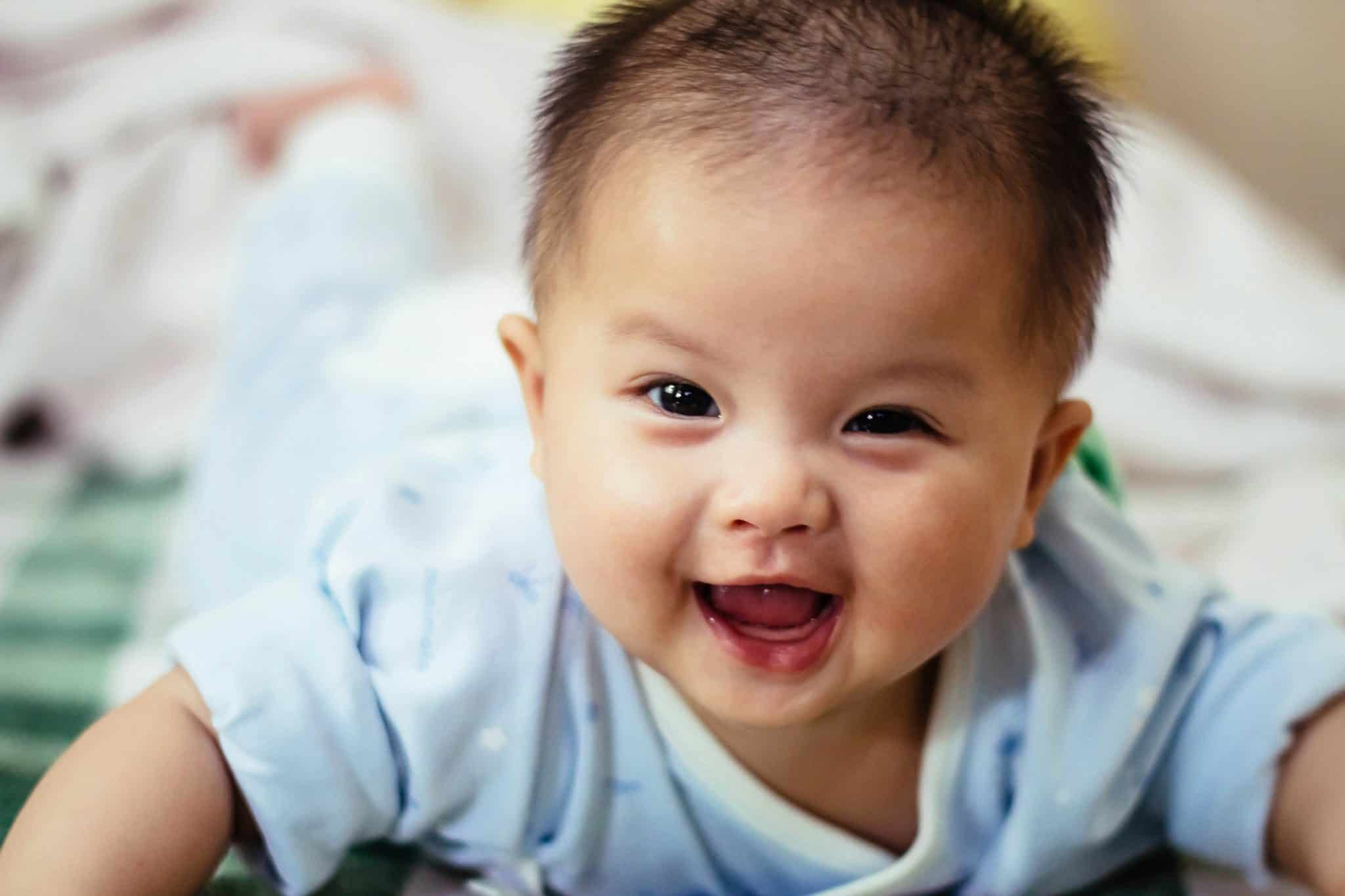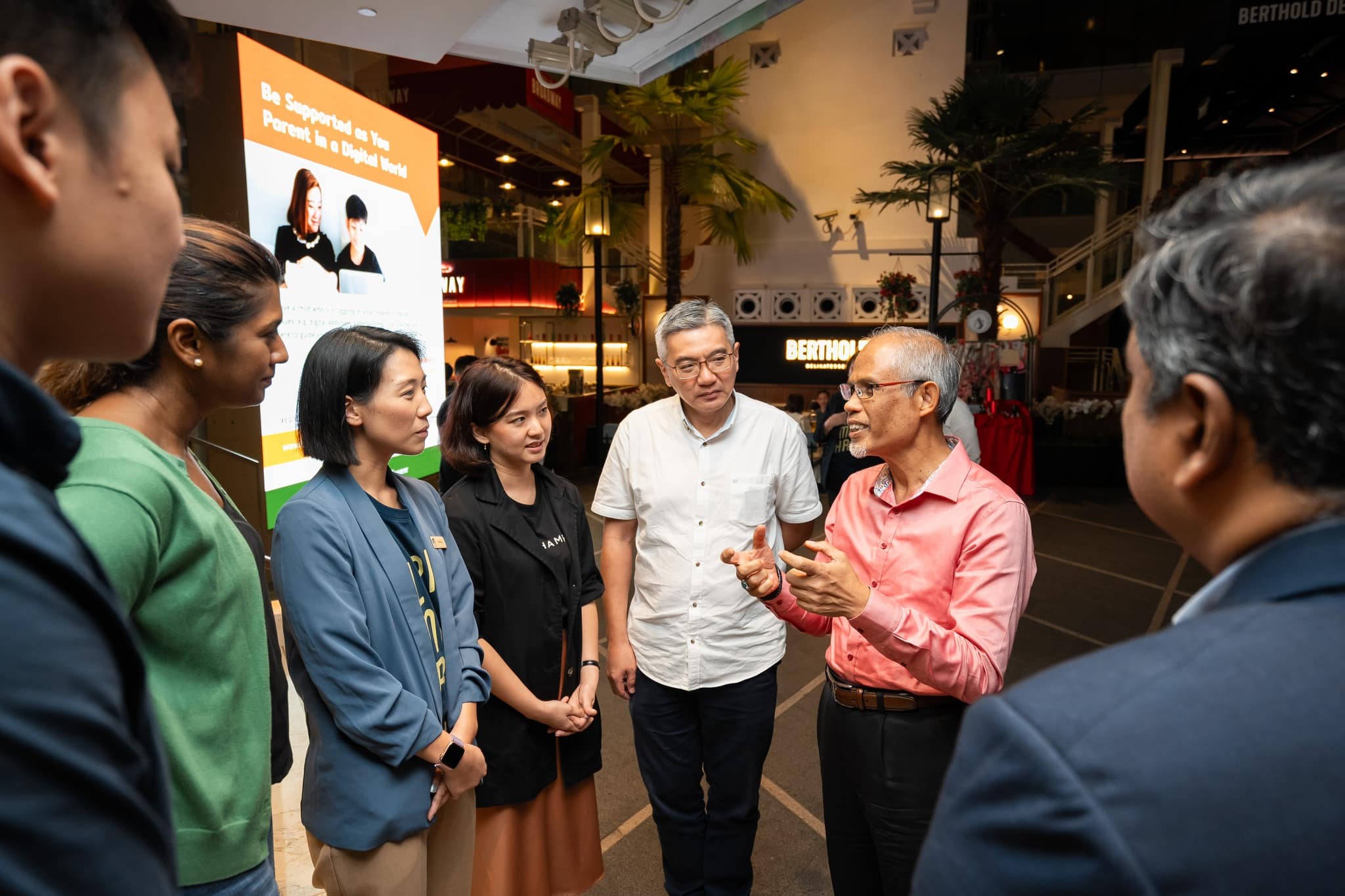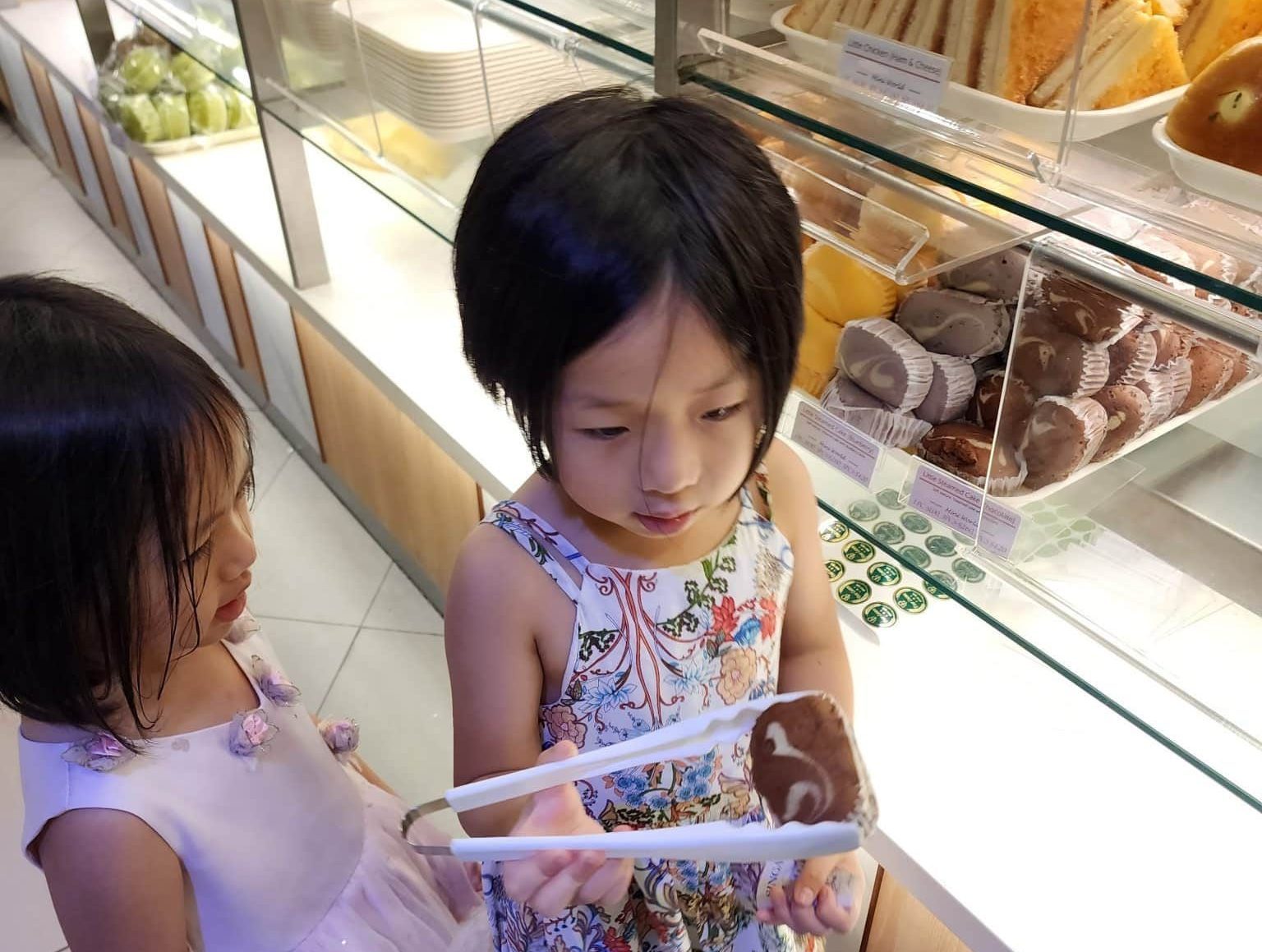“We wanted to be near those who are broken”: How one couple with kids became a foster family
by Christine Leow // July 8, 2021, 3:11 pm
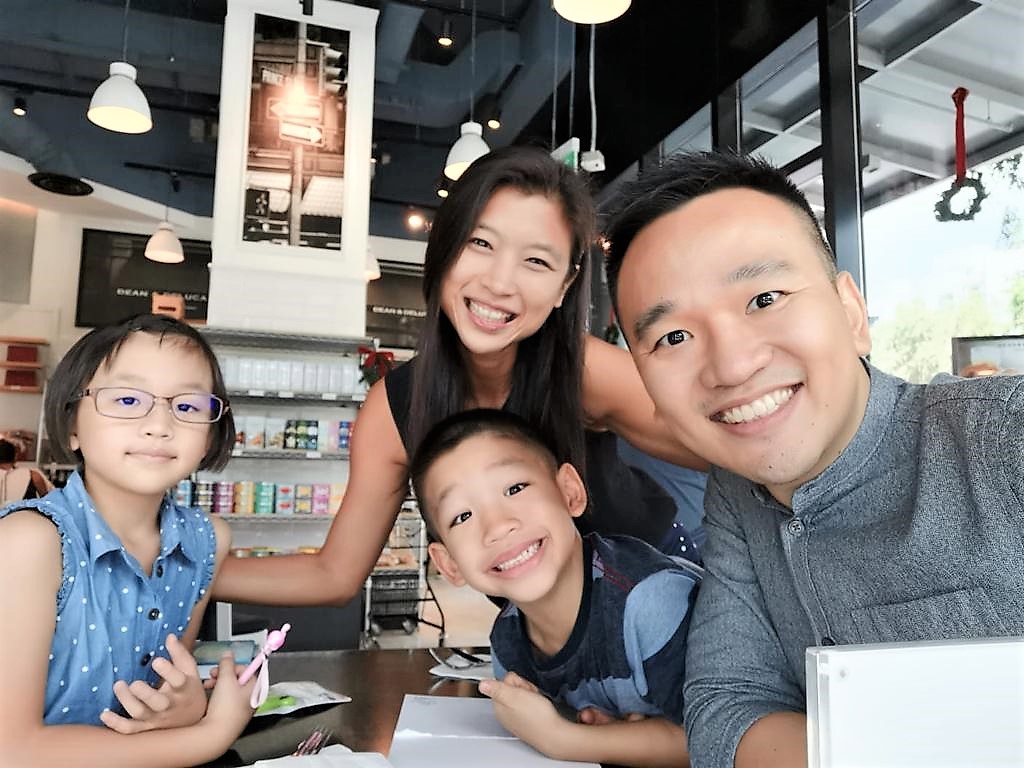
The Maks – Eleanor, Wenshan, Isaiah and Zhehao – made fostering a family affair. Photos courtesy of Mak Zhehao.
When Cheng Wenshan, 37, got a clean bill of health after a routine medical check-up last January, her first thought was not about herself or her family. Instead, she thought about children in need.
“I felt like God was telling me, ‘You have good health. You have good years. This is not just for yourself and your family.
“I would like you to take care of my other children as well.’”
Wenshan has been a social worker for 14 years … When the prompting came from God, she knew it was time.
Wenshan has been a social worker for 14 years. In that time, she has seen “many children and families with complex family issues”. She knew their need for a safe home.
That was why she and her husband Mak Zhehao, 36, had considered becoming foster parents.
Said Wenshan: “There was no one particular case that moved me. It was several different issues – an illness of a child, violence that families were going through, mental illness.
“To see brokenness in different places and also to feel very limited in what I can do all these years, it stirred me.”
What the couple had not decided on was a timeline.
Said Zhehao, a pastor: “We did talk about fostering before. But we were waiting for our kids to be older.”
Added Wenshan: “In my work, I already dealt with these families. I needed my home to be a place I could decompress.”
But on that day, when the prompting came from God, Wenshan knew it was time. There was such “excitement and urgency” that she could not wait to go home to discuss the matter with her husband.
She called him immediately.
“If it is from the Lord, we will support each other in what the Lord has laid upon our hearts.”
“I already knew he would just be very supportive. I know him and I know how he sees his faith.
“I knew that he would agree to it because, to him, that would be a way of living out his faith as well,” said Wenshan.
As expected, her husband was very open.
“I know her quite well. When she shared (her desire) with me, I knew this wasn’t something just from herself. It was clearly something from the Lord.
“We have always operated like this – if it is from the Lord, we will support each other in what the Lord has laid upon our hearts.
“Fostering is really lending a hand to help not just the children but the whole community. This would be a clear expression of our faith to take hospitality to another level.”
A family affair
The Maks knew it would take more than agreement between husband and wife to become foster parents. They had to get their children – a daughter aged 10 and a son aged eight – to agree as well.
Their children, of course, were not unaware of the needs of others.
“Fostering is really lending a hand to help not just the children but the whole community.”
Said Wenshan: “Due to my work, I share a lot about these families and these children. The concept of fostering was not new to our children.”
Added Zhehao: “Because of conversations at dinner or lunch, they know this is the expression of our faith, loving someone else because of what we have received and who God is.
“We always talk about how, as Christians, we need to do more than preach the Gospel. We need to be Jesus incarnate to people as well.
“The way we train our children is that we hope that we would always be a team, that it would be part of what we do together as a family as we express our faith.
“This whole heart of being near those who are broken and the whole idea of loving your neighbour as yourself.”
That night, with Wenshan still out, Zhehao had dinner with their children and raised the question of becoming a foster family.
They felt that there would be “more than enough love in the family to share with others”.
“I wanted a sense of whether they would feel as if attention and love would be taken away from them if we took in another child.”
Both children told their father that they felt that there would be “more than enough love in the family to share with others”.
Within three months of that, the Circuit Breaker kicked in and the family got extended time together.
Said Wenshan: “We had time to sit down at every meal with the kids and to communicate much more.
“We could go in-depth in talking about fostering.”
The couple showed their children videos on fostering and borrowed books about it from the library to prepare them for the reality of being a foster family.
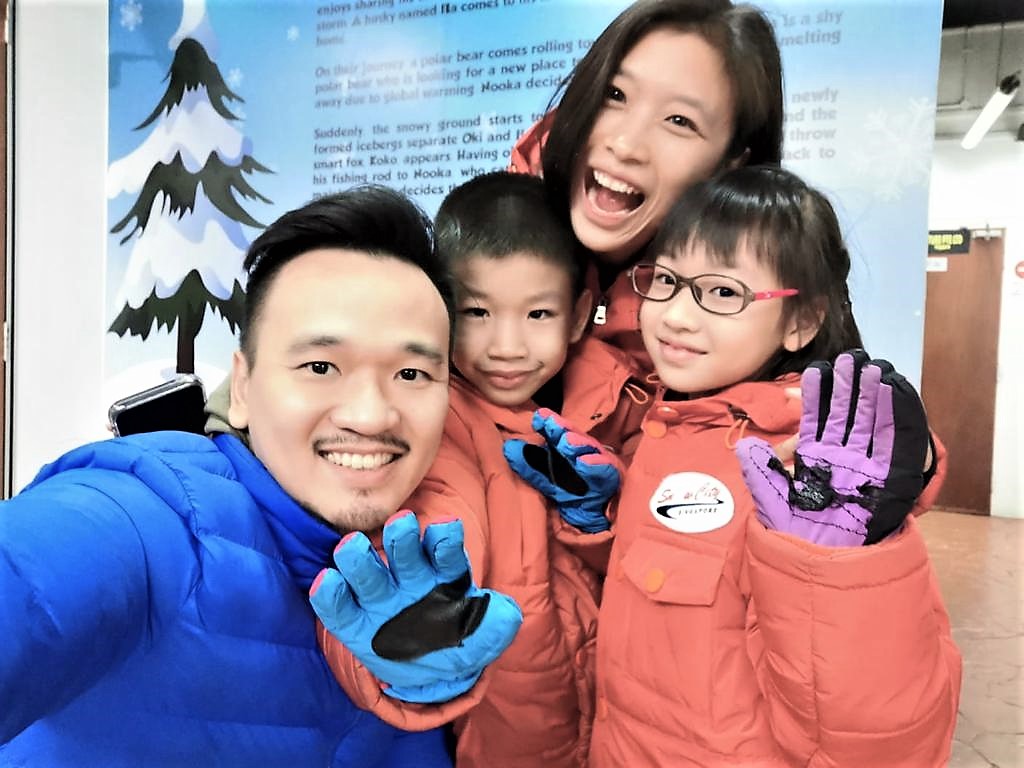
The Maks’ children were very welcoming of the idea of becoming a foster family, something for which both Zhehao (left) and Wenshan (centre) are thankful because they firmly believe that fostering is a family affair.
“We came up with different scenarios like: If the foster child breaks your favourite toy, what would you do? We let them imagine what it would be like,” said Wenshan.
“We told them, ‘Mummy and daddy work, and our work is very demanding. It’s not that we have nothing to do. I may not always have enough patience. This will have to be a team effort.
“We can’t do this alone. We need to pray together. This is something that is aligned with what God wants, so He will give us the strength to do it as we seek to obey.’”
The family grew much closer to each other and the children had the opportunity to take ownership of the situation as well. In fact, they took it upon themselves to write their own book about fostering.
Said Wenshan: “They even created a glossary of terms for the book such as what is a child protection officer.
The children took out their savings and asked their parents to donate it to the Heartbeat Project.
“I was touched. Their hearts were soft. They were open. They didn’t keep thinking of themselves and they trusted us enough.”
The children were so keen to help others in need that they took out their savings and asked their parents to donate it to Heartbeat Project, a charity that helps women facing unplanned pregnancies, single mothers, at-risk children and those with special needs.
“Some of the videos we showed them about fostering came from Heartbeat Project,” explained Wenshan.
“I was very touched that they did it on their own accord. It was so innocent. They just gave what they had.”
Added Zhehao: “They grew in confidence. I was glad that their experience of living in the family was pleasant and that they could say they had more than enough to share. So, we thought, ‘Let’s actively pursue this fostering.’”
Then came reality
At first, the Maks were assigned a child for respite care. The three-year-old lived with them for just a week.
Even so, adjustments were tough.
“We wanted him to know that we all need time and space to do what God wants us to do.”
“We were so used to each other as a family. We had established an equilibrium – how things work, how discipline was conducted, how to share, whose things belonged to whom,” said Zhehao.
Their son, once the baby of the family, found himself in the position of the older brother instead. When both he and the respite care child wanted to play with the same toy, he was told to give in because he was the older one.
“That was very shocking and difficult for him. He cried. I know he felt very torn. He knew he was older and had to give in but he didn’t want to,” said Zhehao.
Their son would later tell them that he felt his parents no longer loved him.
“He told us, ‘I know it’s not true in my mind but I feel like you don’t love me.’ So, we told him, ‘If it’s not true, we don’t have to entertain lies.’
“We told him to come to us if he felt lousy. We wanted him to know that we all need time and space to do what God wants us to do.”
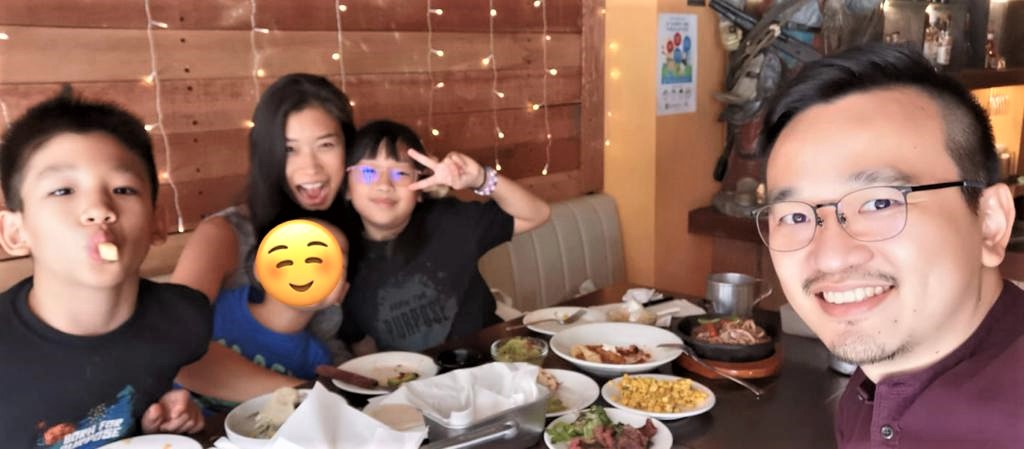
The Maks with their five-year-old foster child (face covered). The entire family grew so close to their foster child that the children wept when they were told the boy had to go home to his parents.
Though their son found it hardest to adjust, he was also the one who cried the most when the respite care child had to go home.
When a five-year-old foster boy was eventually placed with them, more adjustments had to be made. Often, it was the little things that created tension which the Maks never quite expected.
“Sometimes, we felt like a chicken speaking to a duck.”
On one occasion, the family went out to buy dinner. They asked their son to help carry the food but their foster child kicked up a fuss because he thought their son meant to eat all the food by himself.
Said Zhehao: “It was understandable. From the foster child’s point of view, there was a home ground advantage that the family had and he was the stranger coming in.”
Added Wenshan: “It was a lot of miscommunications. Sometimes, we felt like a chicken speaking to a duck.”
There had to be a lot of explaining and encouraging to “not react”. Being the oldest, their daughter was often the mediator.
“The initial two months were very difficult,” admitted Wenshan.
Different home cultures
Part of the difficulty was also learning how to be parents to a child so new to the family.
Said Zhehao: “It was integrating two different home cultures and we constantly had to decide what to educate and shape, and what to let go.
“With our children, we could give them the ‘death stare’ and they would understand. Things function quickly.
“With our foster child, it was not fair to expect the same thing.”
Another challenge they faced was teaching their foster child not to lie.
“He would say things like, ‘This is my favourite food.’ then take a bite of the food and then spit it out into the dustbin.
“We told him, ‘You don’t need to be like kor kor or jie jie. You are special.’”
“It turns out that he had never eaten the food before but was seeking approval, so he said that he liked it.
“Or he would narrate a story similar to what kor kor (older brother) and jie jie (older sister) had just shared and you know it is not possible to be true because the experience was so unique,” said Wenshan.
The importance of telling the truth was something the Mak children already understood and accepted. With their foster child, “it kept coming up even though we explained ourselves”.
Said Wenshan: “Our children know there is a whole trust relationship we have with them. Our foster child didn’t know what that meant.
“We decided that maybe he needed a longer runway. We allowed him to make mistakes and say sorry, and we would forgive him.”
They had to remind the child that “even if you lie, we will still love you”.
Said Zhehao: “It required us to take a look at what was the presenting issue. If he doesn’t feel safe, he feels quite different from the family, how can we approach things?
“So, we told him, ‘You don’t need to be like kor kor or jie jie. You are special.’”
The approach worked wonders and the Maks saw him blossom as the initial function of lying disappeared
They also taught him how to deal with new situations.
“We would go back to the fact that he is different and try to teach them to empathise.”
“We told him, ‘If you have never tried the food before, just say so and ask to try it.’ He was very teachable.
“We didn’t accept the behaviour. Instead, we tried to find out what was the underlying cause of the behaviour and dealt with it.
“We would not have been so patient with our own children because they grew up with (our values),” said Wenshan.
So, that was something else the Maks had to manage – the seeming disparity in expectations. Their children would ask why the foster child seemed to get away with things they could not.
Said Zhehao: “We would go back to the fact that he is different and try to teach them to empathise.
“We told them, ‘He doesn’t have the luxury of knowing how our family works, our system. So, we have to go slower.’”
Love that gives back
As much as fostering is about giving to a child in need, the Maks also found that they received in abundance through their experience.
“When the journey started, I learnt about my own limitations, my own shortcomings, my own brokenness,” said Zhehao.
“We learnt to say sorry when we messed up. It worked with our children and with our foster child.
“We talk about the Gospel and let the children see that we also need God’s grace and forgiveness.”
This expression of humility was new to their foster child, though.
Said Wenshan: “He was shocked when I said sorry for showing my annoyance. I don’t think he has ever experienced adults saying sorry to him before.
“I asked him, ‘How can I help you?’ He said, ‘I need a hug.’”
“He said, ‘It’s ok, mummy.’ Then, we prayed for each other. So, I’m also very blessed to receive that grace from the children.”
The Maks were amazed and moved by how willing their foster child was to learn.
Said Zhehao: “He used to keep very quiet and ignore us when he was angry, or throw things. He had a lot of pent-up anger in his body.”
They taught him to talk about his emotions instead of acting out. After a few missteps, he caught on. When he was next asked to practise writing, something which he did not like, he put the lesson to good use.
“He was pouting and I asked him, ‘How can I help you?’ He just said, ‘I need a hug.’
“We were all quite surprised and thought that maybe we need to learn to express our needs and emotions too,” said Wenshan.
Pain of letting go
The point of fostering has always been to care for the child till he can be reunited with his family.
The Maks had known that their foster child would not be with them forever.
“Right from the start, we had explained to the kids that fostering is temporary and unification is the goal.
“We always talk about the child’s birth parents, that they are around and doing their best to love him. We pray for the foster child’s parents,” said Wenshan.
Still, when the time came, saying good-bye proved difficult. When they broke the news to their children that their foster brother was due for home leave, the children wept.
Said Zhehao: “We didn’t expect them to cry. We thought they would cry on that day but not before then.”
Explained Wenshan: “They really became like siblings. They learnt together, they shared, they squabbled.”
Letting go was tough for the couple as well.
“We had to learn to do our best but also to surrender to God.”
Said Zhehao: “One of my greatest concerns was that the structures we had put in place in his life would be lost and things would go back to before he came to our house.
“I thought it would be such a waste. I literally had two nightmares about it. I had to learn that, as much as we avail ourselves to be foster parents, we are not the Messiah. God cares for the children much more than we do.
“In partnering God in this ministry, we had to learn to do our best but also to surrender to God.”
With the permission of the Child Protection Officer, the Maks wrote down the structures they had built into their foster child’s life so his parents could continue the same practice.
Said Wenshan: “The parents appreciated it. They saw a lot of good things that they had never seen before and were motivated to follow the schedule.”
Their foster child may have gone home but the Maks have only just begun.
“Fostering is a forever thing for us. As long as there are still children who need a home through fostering, we will continue,” said Wenshan.
RELATED STORIES:
Choosing to love: What to know if you’re thinking of adopting or fostering
“We will not choose”: Parents who adopted four babies, three with special needs
Children belong in families. Will you open your homes to foster children in need?
We are an independent, non-profit organisation that relies on the generosity of our readers, such as yourself, to continue serving the kingdom. Every dollar donated goes directly back into our editorial coverage.
Would you consider partnering with us in our kingdom work by supporting us financially, either as a one-off donation, or a recurring pledge?
Support Salt&Light